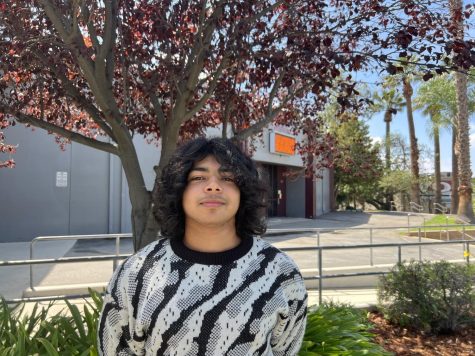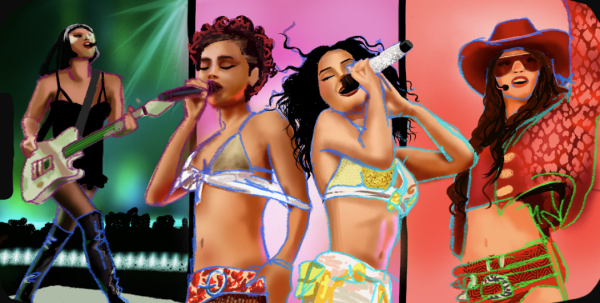Slay the house boots down; the origin of slang
Present in the vocabulary of nearly every high school student nowadays exists certain words or phrases that are totally unintelligible unless you happen to be “in the know.” These words have allowed for tighter friendships to be formed and a feeling of comradery amongst those who “know.” This slang works to bring communities closer together by introducing a variety of complex new words or changes to existing words which allows for a unique feel within a community. This “slang” can be unique to a certain group of people and even extend to a larger community like many teenagers today who utilize certain words in their vocabulary.
The utilization of these words is found in the daily vocabulary of many Gen-Z’ers, but it’s important to note that this particular slang is not so much “Gen-Z” slang; rather it owes much of its creation to African American Vernacular English (AAVE). While there is slang originating from Hispanic communities and Indigenous communities alike such as the use of Spanglish (a combined dialect of English and Spanish) and “skoden” (a looser form of saying “let us go then”), AAVE has paved the way for much of the language present in high schools. Many have mistaken it for being simply slang created by this particular generation. However, the reality of the matter is that these words and phrases have been present in African American culture for generations. For the sake of this article, I will be discussing words heard around campus from peers and in popular music, to touch on the daily use of such words.
Around campus, a popular word used can be heard as a reaction to a disappointing test result to greeting a friend: “bruh.” This word has a wide range of use and can represent any emotion from distress or anger to joy or sadness. It can also be used as a noun to describe a person: “ayy whattup bruh,” or an exclamation of the word accompanied by a sigh to express disinterest or boredom. The word first originated in African American communities and is derived from “brother.” “Brother” eventually broke down to shorter and shorter variations of the word, and alternative forms of the word include “breh” and “bro”.
Many times throughout the day, phrases like “this slaps” and “bet” are heard, but what do those words mean? Well, “slaps” is an adjective used to describe anything that has a prominent effect upon you. For example, if school lunch tastes extremely good one day, one can say “this slaps” to express their adornment with the item. “Bet” is a single word statement that is another way of saying “sounds good” or “alright” and is commonly used to agree with someone’s plans. Does your friend want your help cheating on their chemistry test? “Aight bet” would be an appropriate response to that. Both of these phrases have their origin in the hip-hop scene. These words saw a boom in use after being popularized by the music and African-American culture. More phrases that owe much of their invention and popularity to Black music, and ones that can be heard by many students: “periodt”, “finna”, and “no cap/cap”. “Periodt” began as a popular saying to vocalize support or admiration for an idea and meant something is final, amongst the Black gay population of the south. It eventually picked up steam as the Black rap duo the “City Girls” began to use it. “Finna” found its popularity in hip-hop lyrics through groups like N.W.A. It is a shortening of the phrase “fixing to”, and is used to address things you plan on doing. Such as, “I’m finna walk into the teacher’s lounge.” “No cap/cap” is used to either solidify the truth in a scenario, by saying “no cap,” or emphasize the lie in a scenario by saying “cap”. Atlanta hip-hop artists Young Thug and Future popularized this phrase on their hit song “No Cap,” meant to address their wealth, status, and talent while repeatedly stating that their claims of fame are of “no cap.”
“Gen-Z slang” would be more accurately coined as this generation’s iterations on pre-existing words or phrases that are popular in African American culture. It is important to pay homage and remember the origins of these words so one can use them correctly. Many of these words are heard on campus frequently and it is important to take note and document their use to see how Gen-Z adapts them into their culture. No cap. Did I use that correctly?
Hello there! Our goal is to provide relavent, engaging journalism for readers of all ages. Your donation will support the student journalists of the Wolfpacket at Claremont High School, and will allow us to purchase equipment, print our monthly issues, and enter in journalism competitions. We appreciate your consideration!

Lorenzo is a Senior at Claremont Highschool and a reporter for the Wolfpacket. Their current favorite musical artists include Youngboy Never Broke Again,...











